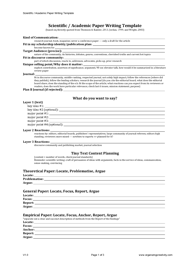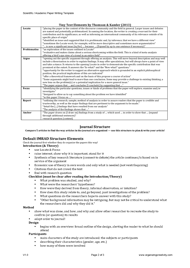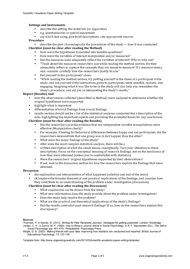“This capacity to imagine oneself as an authoritative scholar engaged in an ongoing conversation with others, and the text as the means of connecting with others and saying something that matters, is central to the publication process.”
“A professor is someone who not only has an allegiance to a particular mode of thought/creed/way of life, but also explains, advocates and stands by it.”
“The issue is that writing for journals is writing into and for a very specific discourse community. What is less obvious, perhaps, is that the community has ways of ensuring relative conformity amongst members. In journals, the most obvious ways in which this happens is through a process of refereeing.”
Thomson & Kamler, 2013
Reading the excellent book “Writing for Peer Reviewed Journals” by Thomson & Kamler, I began to question a few of (few) things I was told about scientific writing. Mostly the issue about “publish in high-ranking journals” — which is stupid if you think about it. Scientific writing is taking part in a discussion — becoming part of a discourse community. If you look (only) for high-ranking journals without actually connecting to the high-level discussion there, you risk barging into discussions where you have nothing to contribute to. And for a beginning scientist, this is devastating and discouraging.
It’s strange — discourse community, participating in a discussion in journals — it’s something I implicitly knew for years, but until I read the book by Thomson & Kamler I could not put it in words. The book really manages to give you a different view on why you should write as a scientist — that is not in conflict with making a career, but tries to make it meaningful.
I tried to condense the information I have learned to far into a Circus Ponies Notebook Template for writing articles. I think for writing good scientific papers you need some kind of context knowledge (about the discourse community, e.g., the discussions you are contributing to), the motivation & organization of your writing (e.g., making and defending your writing time), and style & craft (e.g., being clear, precise, forthright, concise, familiar, and fluid). So, based on the books cited in the references section, I have created a template.
Note that the points and explanations are mostly direct quotations, most from Thomson & Kamler (2013), but also from Jordan (1999), as well as Wright (2003). I have left out some quotation marks and the specific source information. You find most of them in the Circus Ponies Template as Keywords to the cells or in the margins of the PDF. I highly recommend reading the articles/books themselves to really understand the points.
You can download the template as:
- Microsoft Word File (.docx)
- PDF File
- CPN file (.zip archive, unpack first) (In case you want to work with Content Outlines in CPN (see also here), which I highly recommend.)
The Word/PDF Template looks like this:
 |
 |
 |
I hope it helps. I know it would have helped me a lot if I have know it during my PhD … but … well, I guess it shows the importance of having good advisers. And if there was some information lacking, perhaps this template helps you (and read the books/articles, they are really worth it!). I also highly recommend the other two books mentioned in this posting.
Have fun planning and writing 🙂
References
- Thomson, P. & Kamler, B. (2013). Writing for Peer Reviewed Journals. Strategies for getting published. London: Routledge.
- Jordan, C. H., & Zanna, M. P. (1999). How to Read a Journal Article in Social Psychology. In R. F. Baumeister (Ed.), The Self in Social Psychology (pp. 461-470). Philadelphia: Psychology Press.
- Wright, D. B. (2003). Making friends with your data: Improving how statistics are conducted and reported. British Journal of Educational Psychology, 73, 123-136.
This is so helpful – thank you!